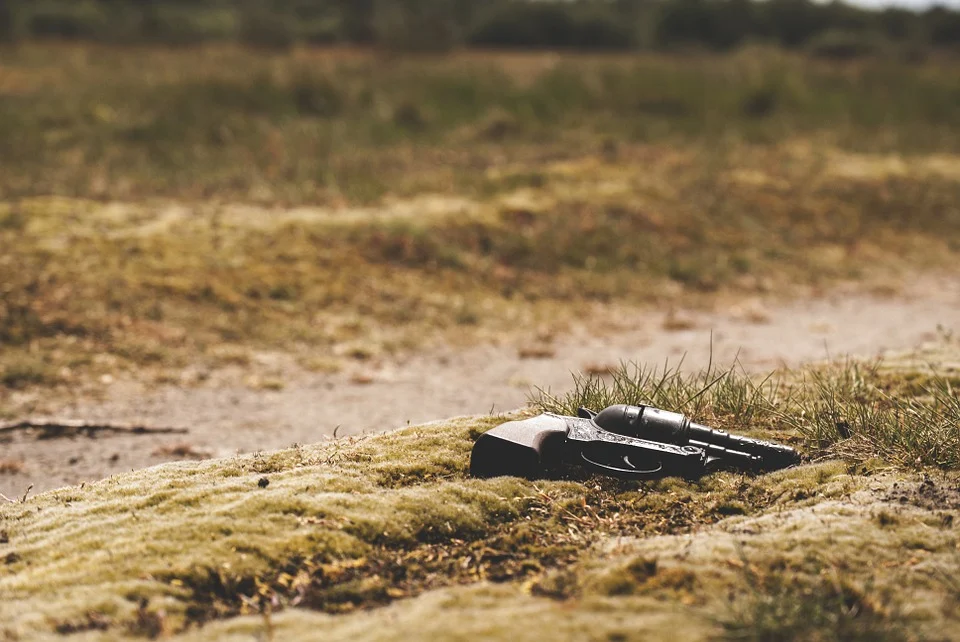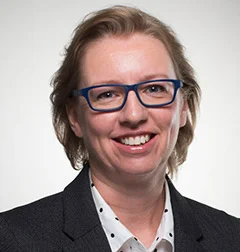
Calls for tighter gun controls in NSW
Published on June 23, 2015 by Rebecca Tidswell
Read the orginial article here.
The widow of a man who committed suicide at a
Shirin Molnar has told the ABC her husband, Gabby Molnar, was able to take his own life because of a deal between the previous Labor government and the Shooters and Fishers Party six years ago.
Under the deal, the NSW Firearms Act was amended making it legal for people without a gun licence to fire a gun at an approved range.
All customers need to do is sign a P650 form declaring they do not have a criminal history, a mental illness or any medical condition which could prevent them from firing a weapon safely.
Police are not required to do background checks on applicants before they get access to loaded weapons.
Mrs Molnar said the system was wrong.
“There should have been a proper system where there was a supervisor and the form was checked,” she said.
In May 2013, Mr Molnar was diagnosed with terminal cancer and given months to live.
He decided against chemotherapy, a decision his wife reluctantly supported.
“He said, ‘I’d rather shoot myself in the head than go through those treatments’,” she said.
“And to that I laughed and he laughed too. We both laughed because he didn’t like guns.”
But four months after his diagnosis, Mr Molnar made a drastic decision.
He told his wife he was going to play table tennis but instead went to a firing range, signed up for the Try Shooting program and took his own life.
Lawyer questions ‘self-assessment nature’ of P650 form
A coronial inquest heard the supervisor at the centre was attending to another unlicensed shooter at the time.
Mrs Molnar said the day it happened she came home to find her husband’s keys in the letterbox.
“I saw the police coming up the stairs and said, ‘Where is he? Why isn’t he with you?’,” she said.
“He said, ‘I’m sorry Mrs Molnar, your husband committed suicide today’.
“I didn’t cry. I just stood there. I didn’t know what to do.”
As she grieves for her husband, Mrs Molnar struggles to understand how he could walk into a firing range, without a gun licence, and get almost immediate access to a loaded weapon.
Lawyer Rebecca Tidswell from Carrol and O’Dea represented Mrs Molnar at the inquest into her husband’s death.
“The P650 form was really the concern that was discussed in detail at the inquest because it’s purely of a self-assessment nature,” Ms Tidswell said.
“The people that would attend the firing range would fill out five or six yes or no boxes and it was purely a self-assessment nature and then they sign, give the form to the officer at the firing range and then they can shoot.
“The concern about that could very easily be dealt with by a change to legislation which requires that that P650 form is run through by the firearms registry, the criminal check, the medical check conducted and a yes-or-no answer provided within about seven days.”
Ms Tidswell said the inquest heard the NSW Police Firearms Registry was opposed to the change in legislation which made the Try Shooting program possible.
“They thought it weakened the regulatory nature of the work that the firearms registry were conducting and also that it posed a risk to public safety for anyone attending the firing range as a spectator or as a participant,” she said.
Eight suicides in shooting ranges since 2002
Mr Molnar’s suicide was not an isolated case. Since 2002, eight people have committed suicide in shooting ranges across Australia; two in South Australia, two in Western Australia, two in Queensland and two in New South Wales.
There has also been a siege and a homicide in NSW, both committed with guns stolen from firing ranges.
Four years ago, Michelle Fernando’s family was shattered by the sudden and violent death of her father, who was killed with a gun stolen from a firing range.
“A family trying to deal with what we’ve been through, it’s not pretty,” Ms Fernando said.
“I think we try to just keep looking after each other, remembering what my dad was like, how committed he was to being community-minded and speaking out against things that he could plainly see were wrong.”
In August 2010, Ms Fernando’s mentally ill sister had been having acute paranoid delusions about her father. Around the same time, she joined a pistol club.
“My sister was suffering from schizophrenia, an acute period of unwellness, and about that time she started shooting,” Ms Fernando said.
“She hadn’t disclosed that she was suffering from a mental illness when in fact she was very mentally ill at the time.
“She was presented with the opportunity to walk out of that club with the pistol she had lent and later that afternoon she shot and killed my father.”
Ms Fernando’s sister was found not guilty of murder on the grounds of mental illness.
Ms Fernando said her father died because of a gradual watering down of strict gun laws introduced after the
“I am so saddened and quite outraged that there have been more deaths by people who should not have had access to firearms,” she said.
Ms Fernando said her sister should never have been able to get her hands on a weapon, and is lobbying with Gun Control
“It allows anyone to walk in off the street and into a gun club who might have a criminal conviction, who might have a mental illness. They might be a danger to themselves or a danger to the public and yet we’re giving them access to high-powered firearms,” said Sam Lee of Gun Control
“It’s a pure trust-based system. The clubs aren’t checking whether people are answering questions correctly and the police aren’t checking, and so that means it’s a free-for-all program,” she said.
Data obtained by Gun Control
And they did not conduct a single random audit of P650 forms last year.
“The number of audits from the beginning were very low and now they’ve reached zero, and what it demonstrates to us is that this program is extremely dangerous and it has affected a number of people’s lives already,” Ms Lee said.
Robyn Ginger is a world champion pistol shooter and the manager of the Sydney International Shooting Centre. She told the ABC her sport was unfairly maligned when there was a fatal incident.
“There’s an incident at a shooting range and it’s all over the news and everyone wants to make tighter controls, but we watch rugby every weekend and someone is carried off in a stretcher with back injuries and ends up quadriplegic but nothing seems to change,” she said.
The Sydney International Shooting Centre is a world-class Olympic facility, where the guns are tethered and new shooters get one-on-one supervision. But tragedies still occur.
“If someone is intent on hurting themselves, there’s not a lot you can do. It’s just what it is,” Ms Ginger said.
In June 2012, a woman with postnatal depression went to the centre. She had asked her mother to look after her two children so she could go shopping. Instead, she signed up to Try Shooting and used the gun to take her own life.
“It was a very unfortunate incident,” Ms Ginger said.
“We treat shooting as a very safe sport and I’ve been around shooting for 27 years and you don’t see incidents. And it was shocking and upsetting and it was upsetting for the staff and the people that were here on the day, there’s no doubt about that.”
But she said 8,000 people had taken part in the Try Shooting program at the centre without incident and that the suicide was an isolated tragedy that could not have been prevented.
Ms Fernando disagreed.
“When we’re talking about pistols, were talking about objects designed to kill people and they’ve been adopted by some people as a tools in sport. But primarily these are deadly weapons that require regulation,” Ms Fernando said.
“A national approach to this problem would be very wise because the obvious fear is that there’s great potential for devastation with firearms as we saw in
Ms Fernando said she met with former police minister Mike Gallacher in 2012.
She said his office described Article 6b as “a betrayal of the spirit of the Howard agreement” and “recognised there was a fundamental problem with the way the provision operates at the moment”.
“Tragically, still nothing has been done about this law. It’s now been four years,” she said.
NSW Police Minister Stuart Ayres was unavailable to speak about the issue but said in a statement that the law governing unlicensed shooters was “under review”.
Robert Borsak, from the NSW Shooters and Fishers Party, declined to comment.
The Sporting Shooters’ Association of Australia also declined to comment.
Ms Fernanado and Mrs Molnar planned to work together to keeping pushing for change.
“Don’t let another person do this. Don’t give them an opportunity to do this. I want something to be done and I will not stop until that thing is done,” Mrs Molnar said.
If you or someone you know is thinking about suicide, call Lifeline on 13 11 14.
As first posted Tue 17 Mar 2015 ABC NEWS.
